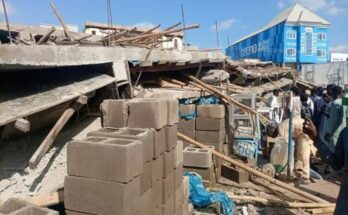The Water Supply and Sanitation Collaborative Council (WSSCC) Nigeria has said it will train female inmates and prison officials on the importance of menstrual hygiene management (MHM) in five states.
The Programme Officer, WSSCC Support Unit, Mrs Ruth During, said Thursday that this became necessary following reports of poor hygiene practices in the prisons.
During said that the organization was already discussing modalities to see how donor agencies could contribute toward providing funds to meet the needs of female inmates.
“We want to do a sensitisation on awareness creation and carry out advocacy visits to the prisons to enlighten the officials and the inmates on the importance of menstrual hygiene management (MHM).
“From research, we found out that female inmates have challenges in managing their menstruation, especially due to the fact that most of them do not have the needed sanitary materials to take care of their menses, largely because of where they are.
“What WSSCC is actually doing is to sensitise the officials, talk to the female inmates, tell them about the impact of menstruation and see how they can collaborate with relevant stakeholders and donor partners to raise contributions to get sanitary materials available.
“We want to target five states; Benue and Cross River, Nasarawa, Niger and the FCT as pilot states, then from there, we move to other states.”
During said the organisation saw the need to promote the dignity of women, adding that with MHM promotion, rights and dignity of the inmates would be promoted.
On activities in the FCT, the programme officer said the organisation had concluded its first training of trainers in collaboration with the federal government and WSSCC.
She said at the end of the training, a communiqué was agreed that the Ministry of Women Affairs should take the lead on MHM issues, saying support had been given to develop an action plan to address this issue.
“We are supporting the ministry of women affairs to pilot and push MHM advocacy. We are giving them support to develop an action plan to act as a tool for resource mobilisation.
“We are looking at having media advocacy to see how to sensitise the population on importance of menstruation and MHM, a lot of people know about menstruation, but one remaining problem from our research is how to manage it.
“In 2020, most of our activities will be in collaboration with Women Affairs Ministry, we have given them the go ahead and we have seen that advocacy has started.”
She added that WSSCC was also targeting schoolgirls in its rural and urban areas toward sustainable practices on MHM management, adding that there was the need to bridge the gaps of low knowledge and misinformation. (NAN)



